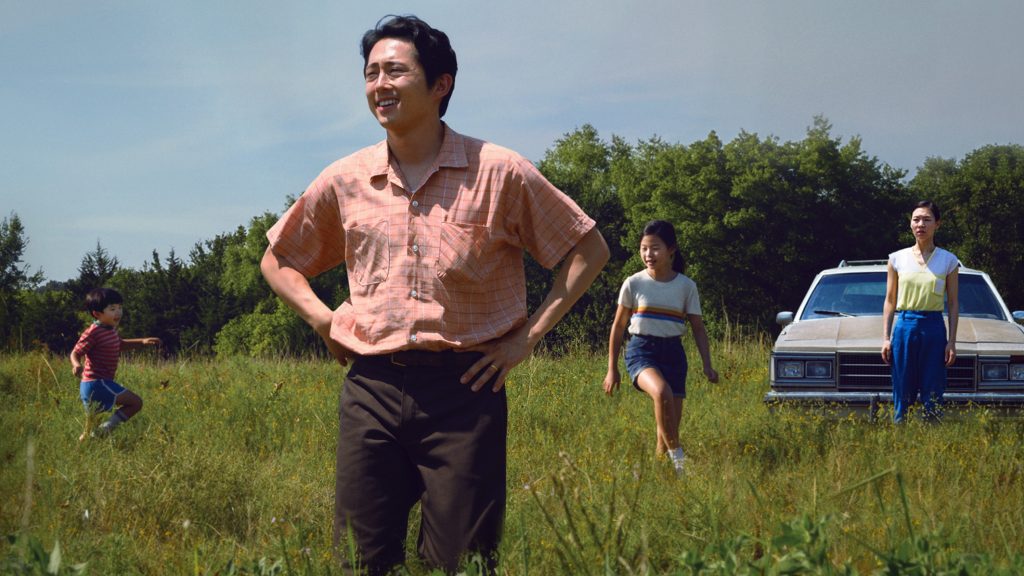Early in Minari, Lee Isaac Chung’s autobiographical account of an immigrant Korean family trying to live the American dream in 80s Arkansas, Jacob (Steven Yeun), declares his ambitions for the big plot of land he’s purchased. He’s going to build a big garden, he tells his family, huge and bounteous, like the Garden of Eden.
The land of Chung’s film does seem like Eden at times, ethereal and promising and somewhat strange. This is, however, not paradise. There are challenges (water shortages, health problems, a loss of community) and dangers (snakes, storms, mounting debt). Filtered through the lens of childhood memory, with the added wisdom of adult hindsight, Minari is a moving story tale of family, fresh starts, and the difficult realities of pursuing a dream.
When the Yi family arrive in their new home, reactions are varied. Jacob has purchased the land, as well as a trailer home. The kids – older, responsible Anne (Noel Kate Cho) and precocious, curious David (Alan S. Kim) – think their new house on wheels is awesome. Wife Monica (Yeri Han) is uncertain, both of the flimsy building and its isolated location, far removed from any connection to a Korean immigrant community. As the family establishes themselves, they add Monica’s mother Soonja (Yuh-jung Yoon) to their home. They make friends and find a church. Their crop starts to produce. At seemingly every turn, however, some form of conflict or hardship awaits to set them back.

Chung has an obvious nostalgia and affection for the landscape of the heartland. It’s lovely to see the overgrown beauty of rural fields and woods so honestly and beautifully photographed, accompanied by Emile Mosseri’s lightly sweeping piano and synthesizer-tinged score. There’s a childlike wonder to the way Chung and DP Lachlan Milne portray the Yis’ farm and surrounding community that, along with Mosseri’s music, makes it feel like an alien world full of possibility.
Less lovely (but still accurate) is Chung’s portrayal of the uncomfortable cultural juxtaposition of this part of the country; a mix of well-meaning Christian hospitality and limited understanding that sometimes presents as casual racism. One boy asks why David’s face is so flat out of genuine curiosity, and even the wild inappropriateness of that question doesn’t stop them from becoming buddies. There are also characters like Paul (Will Patton), a local farmer who immediately warms to the Yi family and expresses his enthusiasm with effusive prayer and speaking in tongues. Patton’s authentic oddball performance is one of the many standouts.
The other major acting highlight is Yoon’s turn as Soonja, a very un-grandmotherly grandma who loves professional wrestling and beating David and Anne at cards. Yoon is a ball of crass, loving energy. Her evolving relationship with David, who distrusts her at first, provides some of Minari’s funniest and most tender moments.
There are so many possible avenues Minari could explore related to the immigrant experience, and especially the immigrant experience in a rural community, that it sometimes feels as though Chung’s film doesn’t go as deep as it could. As a collection of childhood memories, however, it is lovingly and intimately presented. The film feels like an emotionally true record of a highly specific experience, one that contains several universal experiences and conflicts within it.
A-
“Minari” is out Friday on VOD.

